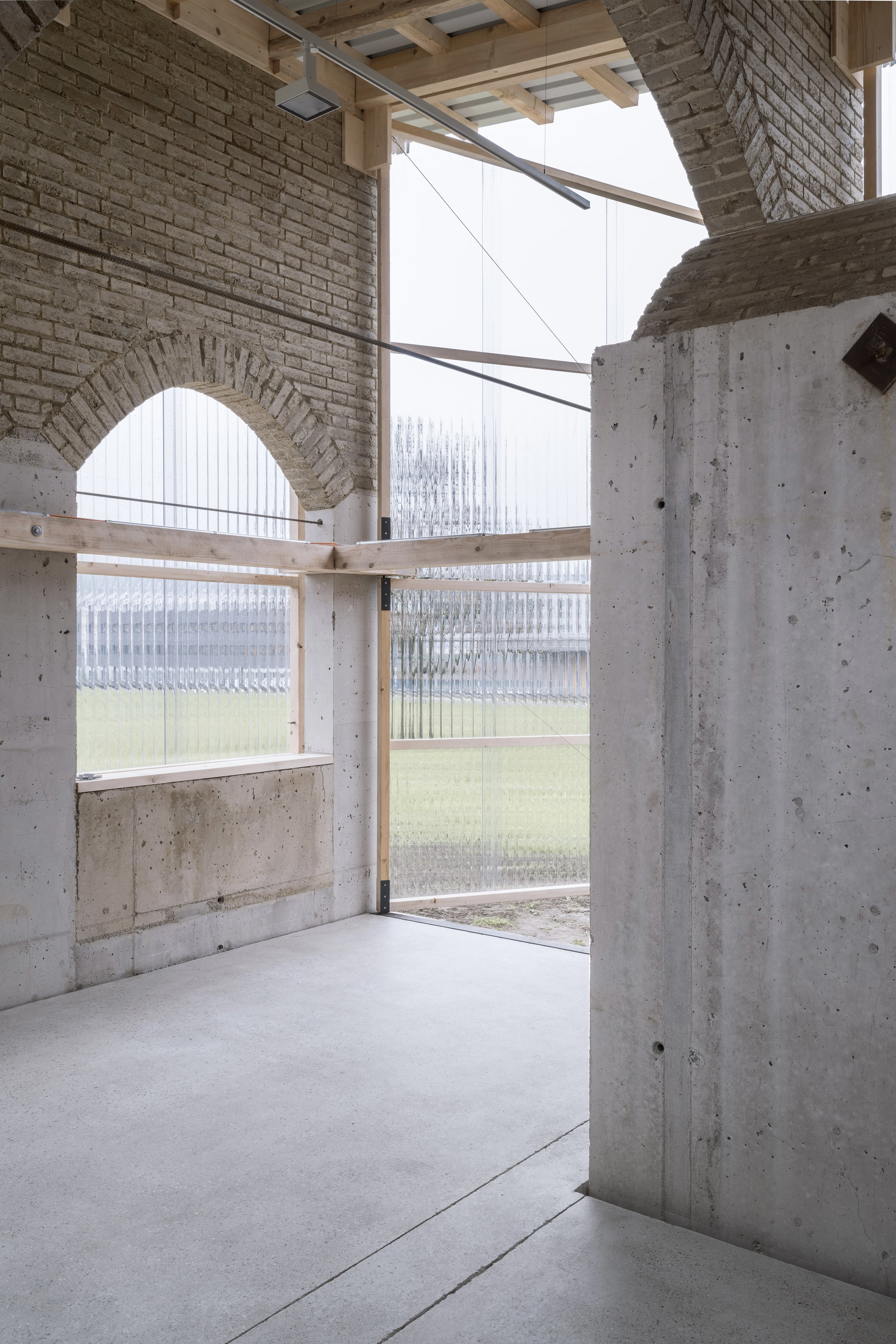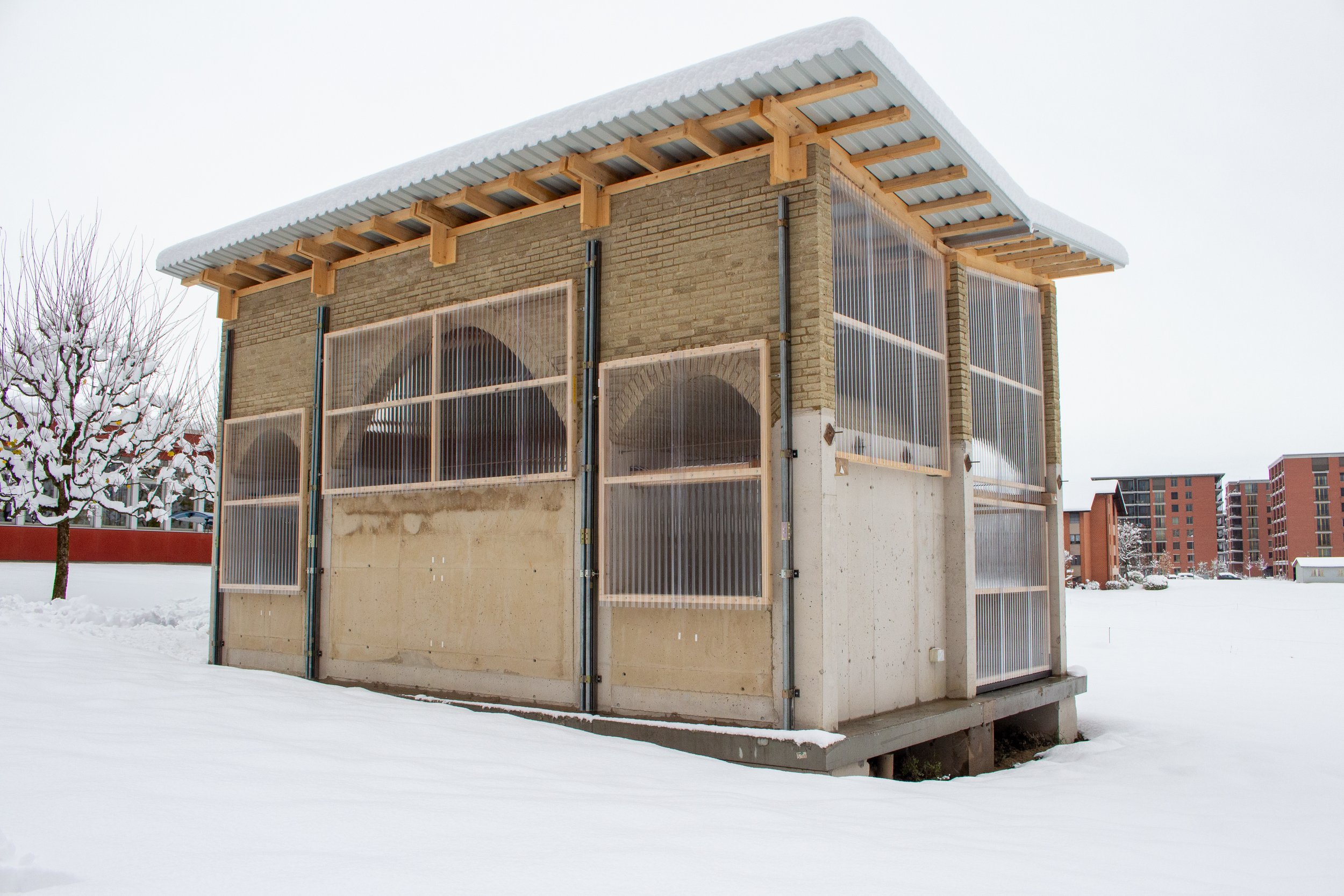Clay in action at Pavilion MANAL: Progress on sustainable building methods
Pavilion MANAL is more than just a structure - it’s a space where innovative, sustainable building techniques and circularity are made tangible. As the pavilion continues to take shape, key collaborators are working together to push the boundaries of construction, using decarbonised building materials. Here’s an update on how the project is evolving.
Preparations for the casting of the clay concrete walls.
Nossim Clay Concrete: A Low-CO2 Alternative
The pavilion’s non-load-bearing walls are being built using Nossim, a stabilised clay concrete offering a sustainable alternative to traditional cement-based materials. Developed with Oxara’s Oxacrete® Nossim admixture, Nossim combines reused sludge from gravel washing plants with sand and water, leading to a CO2 reduction of up to 90%.
Nossim is ideal for non-structural applications, offering a natural aesthetic and contributing to a comfortable indoor environment. The material was produced and transported by KIBECO (KIBAG), our trusted partner in material production, and implemented by Marti Zürich, a team experienced in working with Oxara’s materials from previous projects.
Building arches and vaults with Oxabloc
Masonry work at Pavilion MANAL is progressing steadily. The masonry adds extra ceiling height, while the vaults and arches create distinct spaces and niches within the pavilion, giving it a unique spatial character.
All the masonry is being built with Oxabloc, an unfired compressed earth block co-developed by Terrabloc and Oxara. Instead of traditional cement, Oxabloc uses Oxara’s Oxabrick® Loko admixture, offering a cement-free alternative with comparable strength and performance to fired clay bricks. For the first time, an earth mortar based on the same admixture is being used outside a laboratory setting.
The masonry work is being led by ERNE AG Bauunternehmung, marking the first time the ERNE team has worked with Oxara’s materials. Despite the need for adjustments to the mortar composition, the team has been proactive in finding solutions, ensuring the successful application of these innovative materials.
The role of HSLU in Pavilion MANAL
HSLU (Lucerne University of Applied Sciences and Arts) plays an important role in the Pavilion MANAL project. They’ve supported the pavilion's design and construction by offering both technical and architectural guidance. In addition, the property for the pavilion was provided by HSLU, making them a key partner in bringing this project to life. Their involvement highlights the collaborative approach that has shaped the development of Pavilion MANAL.















